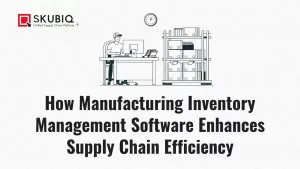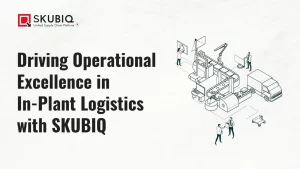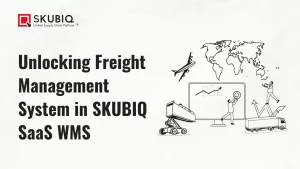Supply chain management (SCM) is the backbone of successful businesses, ensuring the seamless flow of goods and services from the point of origin to the end consumer. In today’s dynamic and interconnected global marketplace, mastering the elements of supply chain management is crucial for staying competitive and meeting customer expectations. Let’s delve into the key components of supply chain management that form the foundation of a robust and efficient supply chain strategy.
1. Demand Forecasting: Anticipating Future Needs
At the heart of effective supply chain management lies the ability to accurately predict and understand customer demand. Demand forecasting is the first and fundamental element in ensuring that resources are allocated optimally throughout the supply chain. By leveraging historical data, market trends, and advanced analytics, businesses can gain insights into customer preferences and behaviors.
Implementing sophisticated demand forecasting tools enables organizations to make informed decisions regarding production schedules, inventory levels, and distribution strategies. This proactive approach minimizes the risk of stockouts or excess inventory, optimizing the overall supply chain performance.
2. Inventory Management System: Balancing Act for Efficiency
A well-designed inventory management system is a critical component that ensures the right products are available at the right place and time. This element of supply chain management involves maintaining a delicate balance between minimizing carrying costs and meeting customer demand. By utilizing advanced technologies like RFID, barcoding, and real-time tracking systems, businesses can achieve greater visibility into their inventory.
Implementing an efficient inventory management system allows organizations to streamline operations, reduce holding costs, and enhance order fulfillment. By optimizing inventory levels, businesses can respond swiftly to market changes, improve cash flow, and enhance customer satisfaction.
3. Supply Chain Strategy: Aligning Goals for Success
Crafting a robust supply chain strategy is essential for aligning organizational goals with operational activities. This element involves a comprehensive approach to designing and executing processes that maximize efficiency, minimize costs, and enhance customer value. A well-defined supply chain strategy considers factors such as sourcing, production, distribution, and logistics.
By integrating key business objectives into the supply chain strategy, organizations can achieve a competitive advantage. This alignment ensures that every aspect of the supply chain works cohesively towards common goals, fostering resilience and adaptability in the face of market fluctuations.
4. Integrated Supply Chain Management: Connecting the Dots
In the era of digital transformation, the concept of integrated supply chain management has gained prominence. This element focuses on breaking down silos within the supply chain and fostering seamless communication and collaboration between different stakeholders. Integration spans across various functions, including procurement, manufacturing, logistics, and customer service.
Leveraging advanced technologies such as cloud computing, IoT, and AI, integrated supply chain management enables real-time information sharing. This interconnected approach enhances visibility, reduces lead times, and facilitates more informed decision-making. As a result, organizations can respond swiftly to changes in demand, supply chain disruptions, and market dynamics.
5. Continuous Improvement: Adapting to Change
The final but ongoing element of supply chain management is a commitment to continuous improvement. In a rapidly evolving business landscape, organizations must be agile and adaptable. Regularly evaluating and refining processes, leveraging feedback, and embracing emerging technologies are essential to stay ahead of the curve.
Continuous improvement involves a cyclical process of planning, implementing changes, measuring performance, and learning from outcomes. By fostering a culture of innovation and agility, businesses can not only meet current challenges but also position themselves for future success.
Conclusion: Building a Resilient Supply Chain
In conclusion, mastering the elements of supply chain management is imperative for businesses aiming to thrive in today’s competitive environment. From accurate demand forecasting to efficient inventory management systems, a well-defined supply chain strategy to seamless integrated supply chain management, and a commitment to continuous improvement, each element plays a crucial role in building a resilient and responsive supply chain.
Businesses that prioritize these elements can enhance operational efficiency, reduce costs, and deliver superior customer experiences. As the landscape of commerce continues to evolve, embracing and optimizing these essential elements will be key to navigating the complexities of the modern supply chain.



